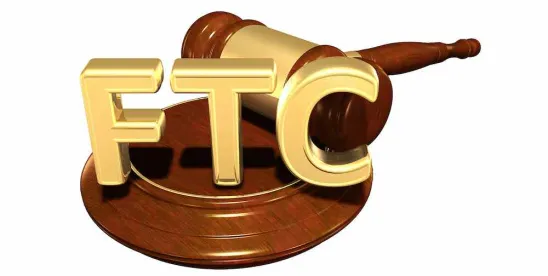On Nov. 5, 2024, the Federal Trade Commission (FTC) filed a lawsuit against Dave, Inc., a U.S. fintech company that offers short-term cash advances through a mobile banking application. The FTC alleges that Dave uses misleading marketing to deceive consumers about the amount of its cash advances, charges consumers undisclosed fees, and charges so-called “tips” to consumers without their consent.
“Dave lured in consumers living paycheck-to-paycheck with false claims of big-dollar advances, then reached into their pockets to give itself a so-called ‘tip,’” FTC Bureau of Consumer Protection Director Samuel Levine said. “Whether the products are called cash advances, payday loans, or something else, the FTC will take action to protect consumers from unauthorized charges and deceptive claims.”
The FTC’s Allegations
In its complaint, filed in the U.S. District Court for the Central District of California, the FTC alleges that Dave violated Section 5 of the FTC Act by:
- “Up To” Claims: Advertising that its customers would “receive cash advances of up to $500,” when “only a miniscule number” of Dave’s customers “are offered cash advances in amounts anywhere close to the amounts advertised.”
- Undisclosed Fees: Advertising that its customers would obtain cash advances “instantly,” when Dave requires its customers to “pay a previously undisclosed ‘Express Fee’ of $3 to $25 in order to avoid waiting two to three business days for their money.”
- Tips & Subscription Fees: Charging undisclosed and misleading fees, including so-called “tips” and monthly membership fees without consumers’ knowledge or consent.
The FTC also alleges that Dave violated Section 4 of the Restore Online Shopper’s Confidence Act (ROSCA) by:
- Inadequate Disclosures: Failing to clearly and conspicuously disclose all material terms before obtaining customers’ billing information.
- Inadequate Express Informed Consent: Failing to obtain express informed consent before charging customers’ credit cards, debit cards, bank accounts, or other financial accounts.
- Inadequate Cancellation Mechanisms: Failing to provide a simple mechanism for customers to cancel their monthly subscriptions and stop recurring monthly subscription fees.
Takeaways
The FTC complaint against Dave quotes a significant number of consumer complaints. Businesses should be mindful that FTC staff attorneys select investigation and enforcement targets based, in large part, on their review of consumer complaints submitted to the agency or to other consumer advocates, including the Better Business Bureau (BBB).
In addition, the FTC complaint challenges “up to” advertising claims, undisclosed and misleading fees, and the marketing of—and related cancellation mechanism for—a negative option feature, namely, Dave’s monthly subscription service. In other words, the FTC’s complaint challenges higher-risk advertising and marketing practices, and thus serves as a reminder that businesses that employ “up to” claims, complex fee structures, or negative option offers should be careful to monitor their conduct in light of developments within the FTC and the other federal and state agencies that police advertising and marketing practices.





 />i
/>i
